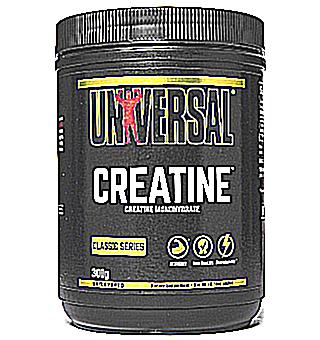Home >
Erectile Dysfunction >
Effect of creatine on potency
Effect of creatine on potency

A substance called creatine is a nitrogen-containing carboxylic acid, which is an indispensable participant in the process of energy metabolism in muscle and nerve cells. Meat and other animal products are natural sources of creatine.
Manufacturers of synthetic creatine add it to dietary supplements in the sports nutrition category. Regular intake of food enriched with 2- (methylguanidino) -ethanoic acid will increase muscle mass and short-term anaerobic endurance, and reduce recovery time after intense training. The nitrogen-containing carboxylic acid helps to quickly lift and maintain muscle definition over extended workouts.
The effect of creatine on the human body
Muscle cells contain a chemical compound that includes the components of phosphorus and creatine. An energy-intensive substance, or phosphocreatine, is designed to supply muscle systems of all levels with the required reserve of physical strength during the period of high-intensity activities.
If an athlete increases the concentration of nitrogen-containing carboxylic acid, then the body is able to maintain extreme load over a long period of time and shorten the gap that tissues need for effective recovery. Thus, 2- (methylguanidino) -ethanoic acid can painlessly increase strength levels and improve repetitive set performance. The presence of a sufficient amount of creatine in muscle cells ensures a rapid increase in lean body mass.
Medicinal properties of creatine
In addition to its main sports task, creatine has a number of positive medicinal effects on the athlete's body. In particular, individuals who regularly supplement their menus with creatine supplements may note:
- stabilization of cardiac activity
- normalization of blood acidity
Side effects of creatine
Creatine is not addictive even with prolonged use. The use of 2- (methylguanidino) -ethanoic acid cannot entail the following negative consequences:
- development of impotence or infertility
- increased blood pressure
- heart failure
- intoxication and slagging of the body
The systematic intake of nitrogen-containing carboxylic acid has the following side effects on the body:
- weight gain. Weight gain is associated with water retention in muscle tissue. The accumulating fluid has the function of maintaining muscle volume and does not harm the human body. The compensatory reaction that occurs in order to level out the osmotic imbalance is almost imperceptible. A man taking supplements with nitrogen-containing carboxylic acid does not show increased swelling of the extremities or swelling of the face. The volume of retained liquid is usually small and does not exceed 0.5-2 liters
- dehydration. If an athlete is taking diuretics or deliberately limiting the amount of water entering the body, then he may suffer from a lack of fluid. The increased osmotic activity of creatine leads to the transformation of the liquid part of the blood into muscle cells. If the body does not receive the necessary volume of fluid, then dehydration occurs, which entails metabolic, thermoregulatory and acid-base disturbances. Taking into account the described risks, the athlete is required to take at least 3 liters of water per day. This will ensure the normal functioning of the body and the flow of a sufficient amount of fluid into the muscle tissue
- disorders of the digestive tract. Some men who use 2- (methylguanidino) -ethanoic acid complain of nausea and abdominal pain, diarrhea and flatulence. The use of an excessive dose of creatine is believed to be the cause of gastrointestinal distress. The delay of slowly dissolving crystals of creatine in the organs of the gastrointestinal tract can be caused by the intake of low-quality creatine with cheap components
- spasms and seizures. Muscle cramps can occur with electrolyte disturbances and dehydration. As a rule, the occurrence of a severe spasm is a consequence of intense physical exertion on muscle tissue
Contraindications
The use of nitrogen-containing carboxylic acid is undesirable for pregnant women and those with the following pathologies:



























